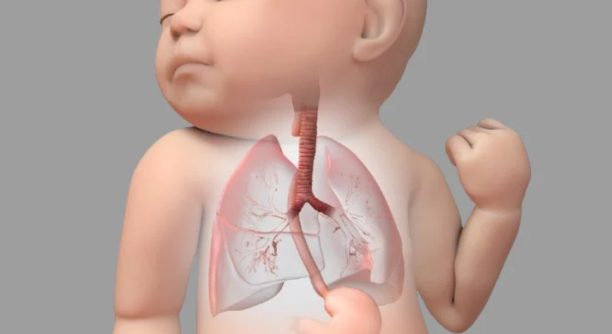If your newborn has been diagnosed with Tracheoesophageal Fistula (TEF), trust our Ghaziabad center for timely diagnosis and expert surgical care. Contact us today for immediate guidance and compassionate support — your baby’s health and safety are our top priorities.
Tracheoesophageal Fistulas
Home » Tracheoesophageal Fistulas
What is Malrotation? What is Tracheoesophageal Fistula (TEF)?
Tracheoesophageal Fistula (TEF) is a congenital defect where there is an abnormal connection between the trachea (windpipe) and the esophagus (food pipe). This defect often occurs along with esophageal atresia, a condition where the upper part of the esophagus ends blindly and doesn’t connect to the stomach.
TEF prevents normal swallowing and digestion and allows food or stomach acids to enter the lungs, leading to breathing problems and infections.

Symptoms of TEF
TEF is typically identified shortly after birth. Common signs include:
Excessive drooling or frothy saliva
Choking or coughing during feeding
Cyanosis (bluish skin) when feeding
Difficulty breathing
Swollen abdomen from trapped air
Repeated pneumonia or lung infections
These symptoms require urgent medical evaluation and intervention.
Diagnosis and Treatment in Ghaziabad
Diagnosis is made using:
Clinical examination
X-rays with contrast studies to identify the defect
Ultrasound or echocardiogram to detect associated anomalies
The definitive treatment is surgical correction, typically performed soon after birth. The surgery involves:
Separating the esophagus from the trachea
Closing the abnormal connection
Reconnecting the esophagus to the stomach if atresia is present
Post-surgery, the baby is monitored in a Neonatal Intensive Care Unit (NICU) and may require feeding through a tube until full recovery.
Why Choose Us?
Expert neonatal and pediatric surgical team
24/7 NICU care in Ghaziabad
Advanced surgical infrastructure
Post-operative support and long-term follow-up

